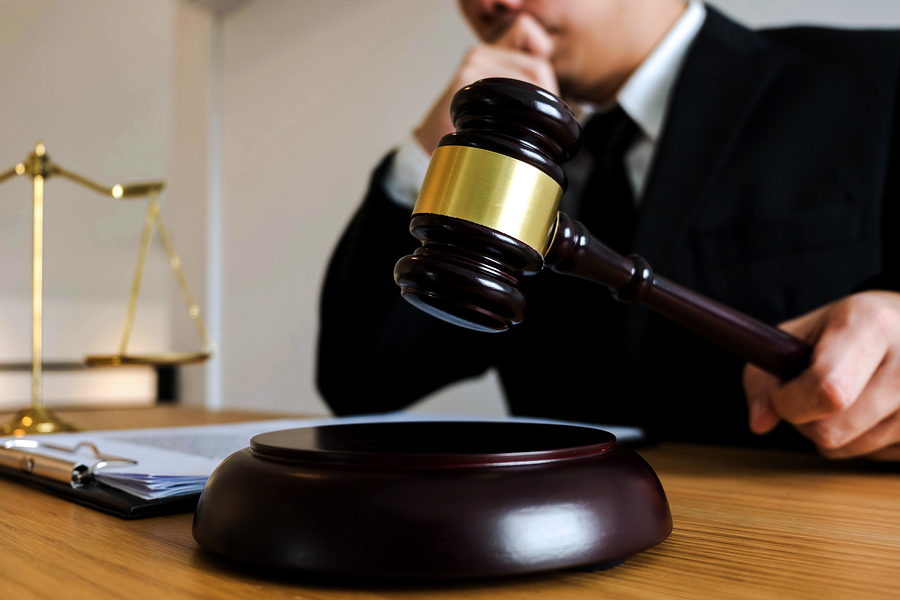Within the realm of legal practice, every case tells a story, and every story has the power to inspire. Whether it’s a heart-wrenching tale of a family fighting for justice or a company maneuvering through compliance challenges, attorneys witness firsthand the resilience of their clients in the face of adversity. In Learn more here , they are not just advocates but vital allies, equipped with knowledge and experience that can make a significant difference in people's lives.
This article dives into the trenches of legal practice, sharing compelling attorney stories that highlight both challenges and triumphs. From personal injury claims to understanding estate planning, we will discuss crucial legal advice that everyone ought to be aware of. Through the lens of real cases and practical insights, we aim to demystify the legal process and enable readers to comprehend their rights and obligations. Join us as we uncover what it truly means to fight for justice and how these narratives can inspire others facing their own legal battles.
Important Judicial Tips
Navigating the lawful environment can be intimidating, but comprehending a few critical pieces of advice can empower you in various situations. First, consistently record everything. No matter whether you are engaged in a injury case, a business dispute, or a family law matter, keeping detailed records can provide essential evidence. Be certain to collect contracts, emails, and notes regarding any talks that are applicable to your case. This not only helps you keep things in order but it also strengthens your stance should you have to submit your case in court.
A further crucial tip is to know when to request legal advice. Many people hesitate to retain an attorney, assuming they can fix issues on their own. However, obtaining legal counsel early can spare time, money, and stress. If you discover yourself facing a complex legal matter or are uncertain about your rights, it’s wise to consult a lawyer who can lead you through the process and help you comprehend your options. Don’t forget, your attorney is there to represent for your benefit.
Finally, always be candid with your attorney. Your lawyer can only truly represent you if you provide thorough and accurate information about your situation. Hiding facts or being unclear can obstruct their ability to develop a solid case and could jeopardize your legal standing. Trust is key in the lawyer-client relationship, so be sure to communicate openly and feel at ease discussing all elements of your case.
Understanding Lawsuit Procedures
Traversing the judicial system can be daunting for those not acquainted with its complexities. It is essential to realize that the judicial process generally involves several steps, including preliminary consultations, information exchange, and possible resolution or trial. During the initial consultation, you will discuss your case with an lawyer who will assess your situation and advise you on the optimal course of action. This is an chance to ask questions and gain clarity on how the law applies to your individual situation.
The discovery phase is where both parties share information relevant to the situation. This entails gathering proof, documents, and witness statements. Comprehending this process is vital, as it lays the foundation for your claims or counterarguments. Your attorney will lead you through the discovery procedure, making sure that you comply with lawful obligations and strategically use the information exchanged to fortify your position.
If your case goes to trial, it is vital to know what to anticipate. Trials generally entail presenting proof before a court or jury, where both sides have the chance to present their case. It is also vital to understand the distinction between settling a case and going to trial. Settling can often preserve time and resources, but it is essential to consider the advantages against the possible outcomes of a trial. Your lawyer will assist you assess the optimal strategy based on the details of your case.
One's Entitlements and Duties
All individual has essential rights that defend them in different scenarios, particularly during interactions with law enforcement. Knowing your rights during a police stop can enable you to react appropriately and safeguard your personal safety. Rights such as the right to remain silent and the entitlement to an attorney are essential in protecting yourself in potentially volatile situations. Being knowledgeable can help you handle these situations without jeopardizing your rights.

Employment also comes with particular rights and responsibilities. Grasping what your rights are as an employee, such as protection against discrimination and the right to a safe workplace environment, is crucial for maintaining just treatment in the workplace. Additionally, being aware your responsibilities, like complying to company policies, can ensure a healthy work environment with employers and colleagues. Awareness in this area can help prevent legal disputes and enhance workplace harmony.
In landlord-tenant relationships, it is crucial to grasp the legal rights and responsibilities each party has. Tenants have rights to adequate living conditions and privacy, while landlords have responsibilities to upkeep the property and handle repairs. Familiarizing yourself with these rights can help alleviate conflicts and lead to more cordial resolutions. By comprehending the legal framework governing these relationships, both landlords and tenants can create a better living and rental experience.
